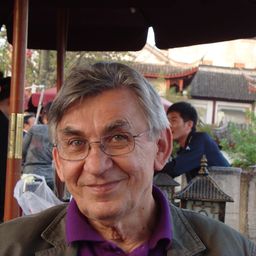
Sessions in which Prof. Bernard Haumont participates
Tuesday 7 June, 2016
L’art contemporain, lorsqu’il est en relation avec le patrimoine culturel, que ce dernier soit bâti ou qu’il mobilise d’autres matériaux ou supports, tend à reconfigurer les rapports de la société à ses patrimoines et à son histoire. Il est ainsi à même d’ajouter, de modifier, de détourner ou même de transformer les valeurs historiennes ou esthétiques communément associées au patrimoine culturel d’une nation, d’une région ou d’un groupe social ou ethnique; y compris d’ailleurs en ce qui conce...
Sessions in which Prof. Bernard Haumont attends
Friday 3 June, 2016
Welcome addresses and cocktail, followed by the Concordia Signature Event "The Garden of the Grey Nuns". As the opening ceremony and cocktail take place in the former Grey Nuns' Motherhouse, recycled into campus residence and reading rooms by Concordia University, delegates will also have the possibility to discover the video Three Grey Nuns (3 minutes, by Ron Rudin and Phil Lichti. Three Grey Nuns recount their memories of communal life in the Grey Nun’s Motherhouse. Built...
Saturday 4 June, 2016
What if we changed our views on heritage? And if heritage has already changed? While, on the global scene, states maintain their leading role in the mobilization of social and territorial histories, on the local scale, regions, neighbourhoods and parishes have changed. Citizens and communities too: they latch on to heritage to express an unprecedented range of belongings that no law seems to be able to take measures to contain, often to the discontent of...
This session explores artist-history exchanges in the context of heritage sites, venues and spaces, and considers recent curatorial and artistic interventions and performative strategies, such as decolonial methodologies. Drawing on disciplinary art history, this session approaches heritage sites as strategically re-deployed historic structures that function as representational signs – artifactual objects furnished with other objects that cumulatively and, by virtue of their provenance, pr...
Sunday 5 June, 2016
Monday 6 June, 2016
This session discusses the ways in which early public housing from the 1950s to 1960s in Hong Kong, China, and Singapore have emerged recently as an arena for the critique of national, elite or dominant notions of heritage and history. The contexts of the development of public housing in the early post-Second World War era and the background to their recent reappraisal as significant sites for the edification of cultural identity or socio-political struggle provide grounds for exploration of ...
Le patrimoine fait aujourd’hui l’objet d’attentions autant que d’agressions et de destructions. Cela peut s’expliquer par les difficultés de son identification ou de sa conservation. Cela peut plus profondément s’expliquer parce que, dès le départ, il célébre un événement ou conserve une mémoire qui peut être ou devenir une source de dissenssions et de conflits politiques. Enfin, sa reconnaissance suscite des gains économiques pour les uns mais des pertes pour les autres. Mais peut-être...
Tuesday 7 June, 2016
Si la ville moderne occidentale se transforme, sous l'action des aménageurs, en écho à des utopies, des programmes de développement et des intérêts économiques, on néglige trop souvent l'action quotidienne d'habitants et d'acteurs sociaux qui s'approprient les lieux et contribuent à les transformer. Dans cette mutation de la ville, le patrimoine se trouve à la croisée d'enjeux économiques et sociaux singuliers: d'une part il est convoqué par les aménageurs et les acteurs de la gentrification ...



